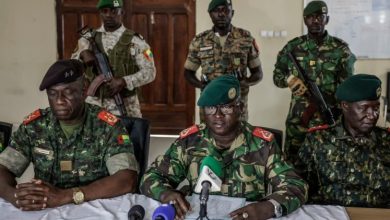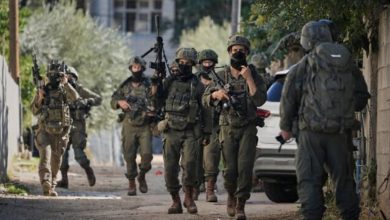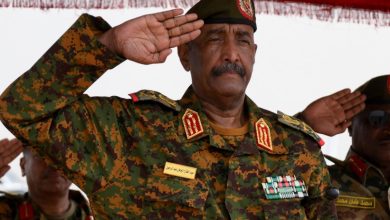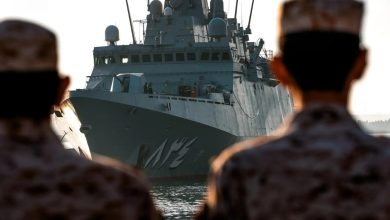
Sudan’s Rapid Support Forces (RSF) announced on Monday a unilateral three-month humanitarian truce in response to international efforts to halt hostilities and expand humanitarian access.
The announcement came a day after the SAF’s commander, Abdel Fattah Al-Burhan, rejected a US-backed proposal, calling it “biased” and criticizing it as the “worst yet.”
RSF Unilateral Truce
On Monday, the leader of the RSF, Mohamed Hamdan Dagalo (Hemedti), announced in a statement that his forces would enter into “an immediate humanitarian ceasefire that includes a cessation of all hostilities for three months,” reported AFP.
He said that this truce came in response to international efforts, including the initiative of US President Donald Trump and the Quad mediators, emphasizing the RSF’s commitment to allowing humanitarian operations.
The Quad group involves the US, Saudi Arabia, Egypt and the UAE.
Dagalo hoped that the truce could serve as “the first step toward ending hostilities and reaching a comprehensive political solution” to the conflict in Sudan. “We hope the Quad countries will play their role in pushing the other side to engage with this step,” he added.
Moreover, he said that the paramilitary group was ready to engage in talks with all actors except the “terrorist Islamist movement of the Muslim Brotherhood and the National Congress Party and their affiliates (the army and allied groups).”
Dagalo also approved the creation of a field-monitoring mechanism in cooperation with the Quad, the African Union and the regional Intergovernmental Authority on Development (IGAD) bloc, according to Al-Jazeera.
SAF’s Criticism of Quad
Late on Sunday, Al-Burhan rejected a ceasefire proposal backed by the US and the Quad group, slamming it as the “worst yet” for eliminating the SAF while keeping the RSF in their positions. “No one in Sudan will accept the presence of these rebels or for them to be part of any solution in the future,” SAF’s leader said.
Moreover, he criticized the presence of the UAE in the Quad group, as Abu Dhabi faces accusations of backing the RSF with weapons and mercenaries – a claim it has repeatedly denied.
“The UAE cannot be accepted as a mediator in the crisis,” Al-Burhan said, adding that “the entire world has witnessed the UAE’s support for rebels against the Sudanese state.”
Al-Burhan also lambasted the US Africa envoy, Massad Boulos, for impeding peace efforts. “If this is where the mediation is going, then we consider it biased, especially Massad Boulos who threatens us and speaks like he wants to impose things on us. We fear he could be an obstacle to the peace all of us Sudanese want,” he noted.
Meanwhile, SAF’s commander praised Saudi Arabia and the US for their peace efforts to end the fighting in Sudan.
During a visit to Washington, the Saudi Crown Prince and Prime Minister, Mohammed bin Salman, asked US President Donald Trump to intervene to bring the conflict to an end. “And we’re going to start working on Sudan,” Trump vowed.
Al-Burhan, for his part, thanked both leaders, welcoming their peace initiative as an “honest” one.
UAE Response
After Al-Burhan’s remarks, the UAE criticized his “obstructive behavior,” calling for unconditional and immediate ceasefire. In a statement on Monday, the Emirati Minister of State for International Cooperation, Reem Al Hashimy, said: “In his rejection of the US Peace Plan for Sudan, and his repeated refusal to accept a ceasefire, he demonstrates consistently obstructive behavior.”
She added that Abu Dhabi is “gravely concerned by the conduct of both warring parties whose escalating military actions and continued refusal to facilitate humanitarian access are driving Sudan further into collapse,” calling for “an unconditional and immediate ceasefire to end this civil war.”
Also on Monday, the UAE Deputy Prime Minister and Minister of Foreign Affairs, Sheikh Abdullah bin Zayed Al Nahyan, met with Boulos in Abu Dhabi to discuss the situation in Sudan, the Emirates News Agency (WAM) reported.
The Emirati official commended Trump’s efforts and reiterated support for “all regional and international initiatives aimed at reaching an immediate and unconditional ceasefire.” He also stressed Abu Dhabi’s “support for a politically driven, civilian-led process to resolve the crisis, stressing the need to exert every possible effort to end this civil war.”
UAE Alleged Involvement in Sudan
The UAE has faced accusations from the SAF, UN experts and human rights groups of providing military support to the RSF. Earlier in November, US State Secretary Marco Rubio called for international action to cut off weapons supplies to the RSF, slamming countries involved in Sudan’s conflict, although he stopped short of publicly accusing the UAE.
“We know who the parties are that are involved. These things – that’s why they’re part of the Quad along with other countries involved,” Rubio said, adding that “this needs to stop.”
However, the UAE has consistently rejected claims of supporting the RSF, denying any involvement in the conflict.
The war in Sudan broke out in April 2023 between the SAF and the RSF, triggering what the UN called “the world’s most devastating humanitarian and displacement crisis.” It has killed tens of thousands of people, displaced over 12 million inside Sudan and to neighboring countries, and pushed parts of the country into famine amid cholera outbreaks.
The conflict has effectively split the country in two, as the SAF controls the center, north and east, while the RSF holds the entire Darfur region and parts of Kordofan, with each side declaring a government.





